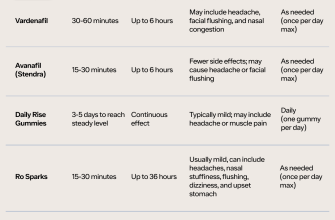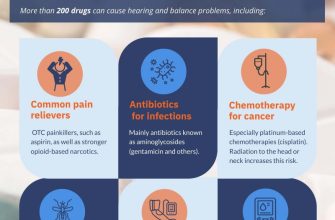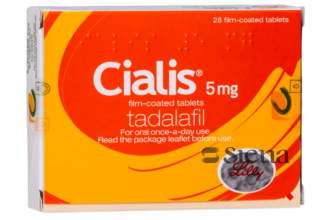Need information on a 60mg Cialis dosage? This isn’t a standard prescription, so understanding its implications is key. Consult your doctor before considering this higher dose; they can assess your individual needs and health profile to determine if it’s appropriate for you.
Higher dosages like 60mg might be considered in specific situations, perhaps when lower doses haven’t provided sufficient improvement. However, increased dosage also means a heightened risk of side effects. Common side effects include headache, muscle aches, and flushing, but more serious issues are possible. Your physician will weigh the potential benefits against these risks. They’ll also consider your existing health conditions and any medications you are currently taking to ensure a safe and effective treatment plan.
Remember, self-medicating with higher doses is dangerous. Always obtain a proper prescription from a qualified healthcare provider. They will provide tailored advice based on your medical history, lifestyle, and desired outcomes. Don’t hesitate to discuss any concerns or questions you might have regarding Cialis or any other medication. Open communication with your doctor is crucial for optimal health management.
Disclaimer: This information is for educational purposes only and does not constitute medical advice. Always consult your physician before starting or changing any medication.
Cialis 60mg: Understanding the Dosage
Cialis 60mg is not a standard dosage. The recommended starting dose is typically 10mg, and the maximum recommended dose is 20mg, taken once daily. Taking 60mg could increase the risk of side effects.
Higher doses don’t necessarily mean better results. In fact, exceeding the recommended dosage can lead to an increased incidence of side effects such as headaches, flushing, muscle aches, back pain, nasal congestion, and upset stomach. More severe side effects, though rare, include vision changes, hearing loss, and prolonged erection (priapism).
Always consult your doctor before taking Cialis, especially if you have underlying health conditions such as heart problems, liver disease, kidney disease, or a history of stroke. They can help determine the appropriate dosage based on your individual health needs and risk factors. Your doctor will consider factors like your age, overall health, and the severity of your condition.
Self-medicating with higher doses is dangerous. Incorrect dosage can compromise treatment effectiveness and potentially cause harm. Follow your doctor’s instructions meticulously regarding dosage and frequency.
If you experience any unexpected or concerning side effects after taking Cialis, contact your doctor or seek immediate medical attention. They can provide appropriate guidance and address any potential complications.
Is a 60mg Dose of Cialis Right for You?
No. A 60mg dose of Cialis is not typically recommended and exceeds the maximum approved dose.
The highest FDA-approved dose is 20mg. Taking a higher dose won’t necessarily improve results and significantly increases the risk of side effects.
Common side effects include headaches, muscle aches, back pain, flushing, nasal congestion, and indigestion. Higher doses elevate the likelihood and severity of these issues.
Consider these factors: Your doctor will assess your overall health and medical history before prescribing Cialis, determining the appropriate starting dosage – usually 10mg. They’ll adjust the dose based on your response and any side effects experienced. This personalized approach maximizes efficacy while minimizing risks.
Always follow your doctor’s instructions. Never increase the dosage without their explicit guidance. Open communication with your healthcare provider ensures safe and effective treatment.
If you’re experiencing erectile dysfunction, exploring alternative treatment options with your doctor is recommended if Cialis proves unsuitable at lower doses or causes unacceptable side effects. Other medications, lifestyle changes, or even counseling could be beneficial.
Cialis 60mg: Potential Side Effects and Precautions
Consult your doctor before taking Cialis 60mg. This dosage is higher than typically prescribed, increasing the risk of side effects.
Common side effects include headache, flushing, nasal congestion, indigestion, back pain, and muscle aches. These usually are mild and temporary. However, severe side effects, though rare, require immediate medical attention.
Serious side effects can include prolonged erection (priapism), sudden vision loss, or hearing loss. Seek immediate medical help if you experience any of these.
Precautions: Cialis 60mg interacts with certain medications, particularly nitrates. Combining them can cause a dangerous drop in blood pressure. Inform your doctor about all medications you’re taking, including over-the-counter drugs and supplements.
Individuals with heart problems, liver or kidney disease, or a history of stroke should discuss the risks and benefits with their physician before using Cialis at any dosage, especially 60mg.
Alcohol consumption can intensify side effects. Limit alcohol intake while taking Cialis 60mg.
This information is not a substitute for professional medical advice. Always consult your doctor before starting any new medication.
Finding Reliable Information About Cialis Dosage
Always consult your doctor or a qualified healthcare professional before taking Cialis, or any medication. They can determine the appropriate dosage based on your individual health needs and medical history. Don’t rely solely on online sources for medical advice.
To find reliable information, consider these resources:
- The official prescribing information (package insert): This document, provided by the manufacturer, offers detailed information about Cialis, including recommended dosages, potential side effects, and precautions.
- Your doctor’s office or pharmacy: These are primary sources for accurate and personalized information. Ask your doctor or pharmacist any questions you have about Cialis dosage and potential interactions with other medications.
- Reputable medical websites: Sites such as the National Institutes of Health (NIH) or the Mayo Clinic provide reliable health information. Look for websites with .gov or .org domain extensions, indicating a governmental or non-profit organization.
- Peer-reviewed medical journals: These publications contain research articles about various medications, including Cialis. Access to these journals may require a subscription, but many university libraries provide access.
When searching online, be aware of misleading or inaccurate information. Avoid websites selling medications without a prescription, as these may be unsafe or ineffective. Focus on sites with clear sourcing and information that aligns with medical consensus.
- Check the credentials of the authors or organizations: Are they medical professionals or reputable research institutions?
- Look for cited sources: Reliable information backs up claims with references to scientific studies.
- Be wary of sites promising quick fixes or miracle cures: These are often unreliable.
Remember, self-treating can be risky. Always seek professional guidance for medical concerns.








